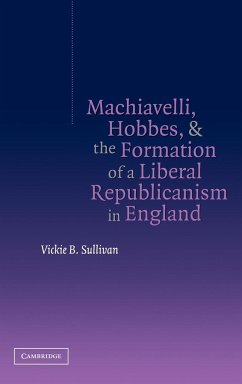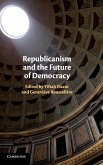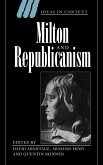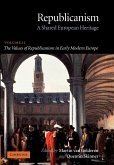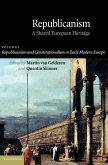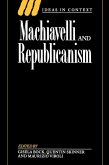Argues that some English writers of the seventeenth and early eighteenth centuries synthesized a liberal republicanism.
Certain English writers of the seventeenth and early eighteenth centuries, whom scholars often associate with classical republicanism, were not, in fact, hostile to liberalism. Indeed, these thinkers contributed to a synthesis of liberalism and modern republicanism. As this book argues, Marchamont Nedham, James Harrington, Henry Neville, Algernon Sidney, and John Trenchard and Thomas Gordon, the co-authors of a series of editorials entitled Cato's Letters, provide a synthesis that responds to the demands of both republicans and liberals by offering a politically engaged citizenry as well as the protection of individual rights. The book also reinterprets the writings of Machiavelli and Hobbes to show that each contributed in a fundamental way to the formation of this liberal republicanism.
Table of content:
Acknowledgments; Introduction; Part I. The Foundations of Liberal Republicanism: 1. Machiavelli's republicanism; 2. Hobbes on peace, the passions and politics; Part II. The Formation of the Synthesis: 3. Marchamont Nedham and the beginnings of a Liberal republicanism; 4. The distinctive modern republicanism of James Harrington; 5. Henry Neville's proposal for a republic under the form of monarchy; 6. Algernon Sidney as anticipator of Locke and secret admirer of Machiavelli; 7. Cato's thought as the reconciliation of Machiavellian republicanism and Lockean liberalism; Conclusion; Works cited; Index.
Certain English writers of the seventeenth and early eighteenth centuries, whom scholars often associate with classical republicanism, were not, in fact, hostile to liberalism. Indeed, these thinkers contributed to a synthesis of liberalism and modern republicanism. As this book argues, Marchamont Nedham, James Harrington, Henry Neville, Algernon Sidney, and John Trenchard and Thomas Gordon, the co-authors of a series of editorials entitled Cato's Letters, provide a synthesis that responds to the demands of both republicans and liberals by offering a politically engaged citizenry as well as the protection of individual rights. The book also reinterprets the writings of Machiavelli and Hobbes to show that each contributed in a fundamental way to the formation of this liberal republicanism.
Table of content:
Acknowledgments; Introduction; Part I. The Foundations of Liberal Republicanism: 1. Machiavelli's republicanism; 2. Hobbes on peace, the passions and politics; Part II. The Formation of the Synthesis: 3. Marchamont Nedham and the beginnings of a Liberal republicanism; 4. The distinctive modern republicanism of James Harrington; 5. Henry Neville's proposal for a republic under the form of monarchy; 6. Algernon Sidney as anticipator of Locke and secret admirer of Machiavelli; 7. Cato's thought as the reconciliation of Machiavellian republicanism and Lockean liberalism; Conclusion; Works cited; Index.

